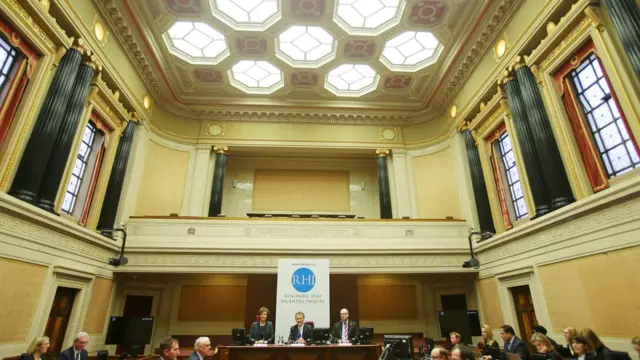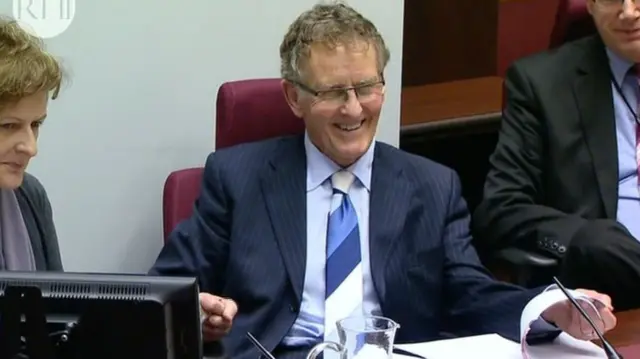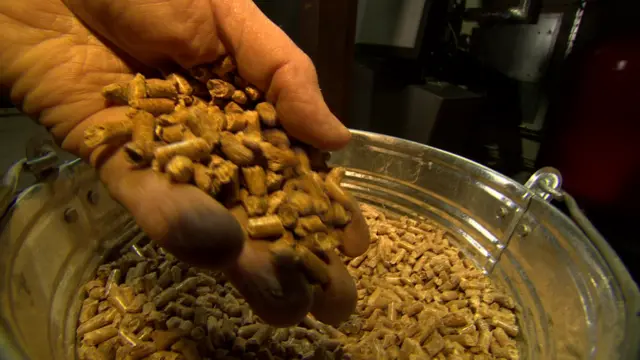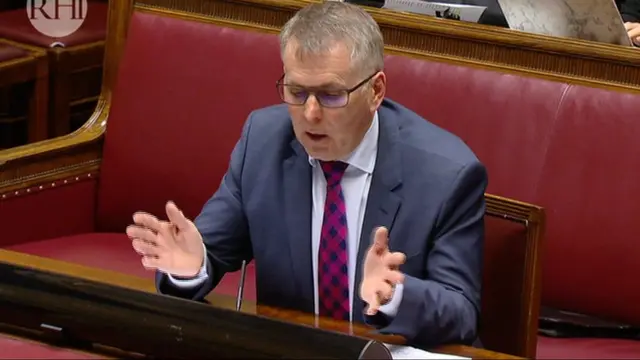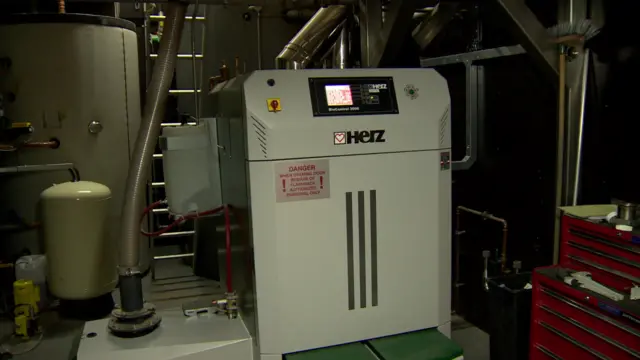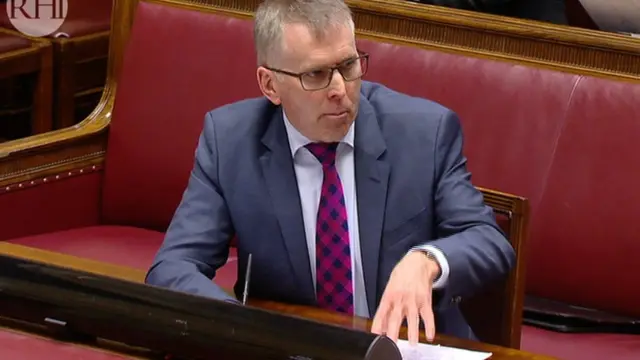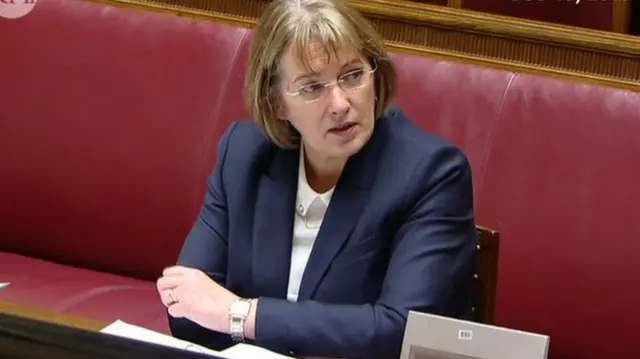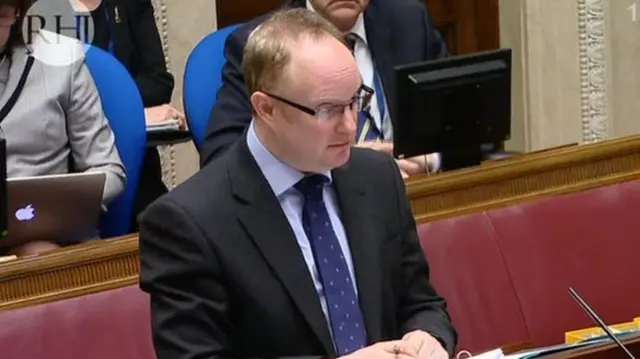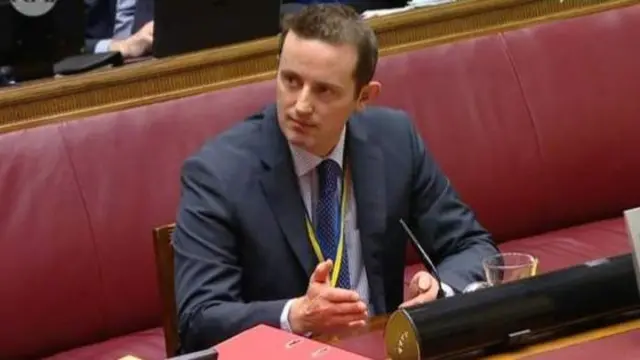That's all for today...published at 17:27 GMT 13 March 2018
Mr Scoffield admits defeat - he hasn't been able to finish his list of questions, so Mr Sterling will have to come back next Tuesday.
Inquiry chair Sir Patrick Coghlin and the inquiry's legal team are mindful that the witness may have other things to attend to - such as running the country in the absence of a Stormont.
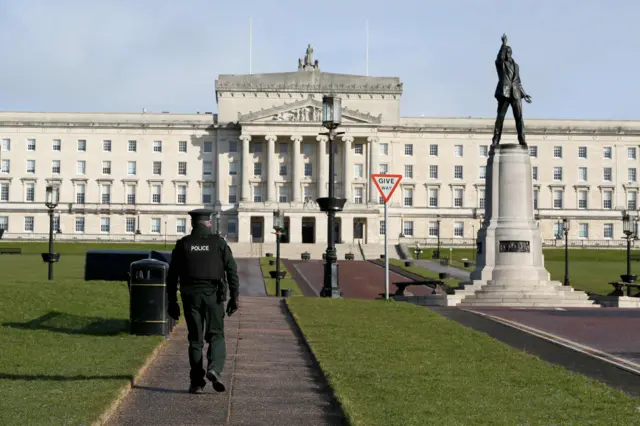 Image source, AFP
Image source, AFPIn the meantime, a quick look out the window reveals that there's been a quare stretch in the evenings since we were last up here at Stormont, so we're off to make the most of it.
Join us at 09:45 tomorrow the morning for more live coverage from the RHI Inquiry.

